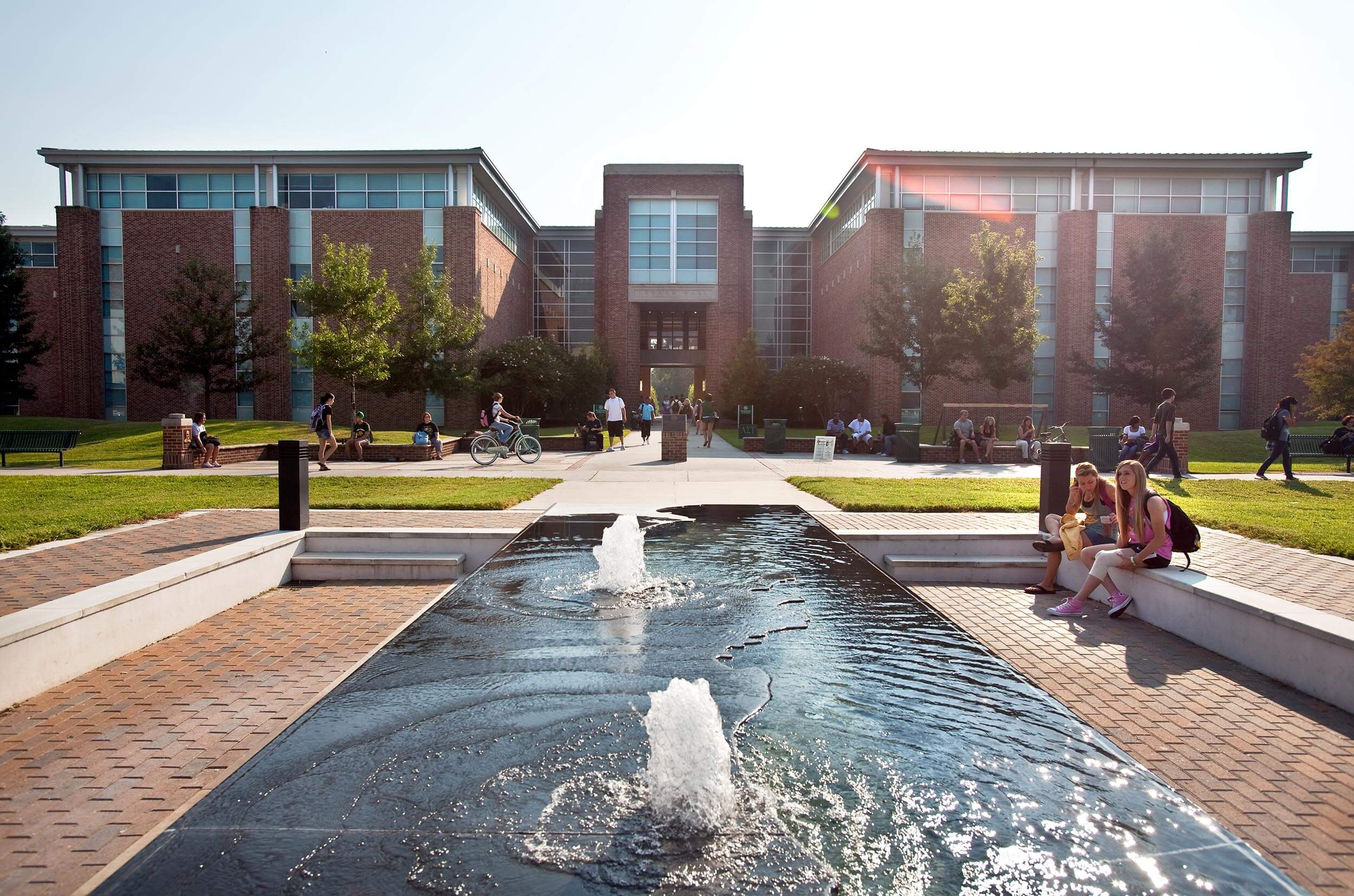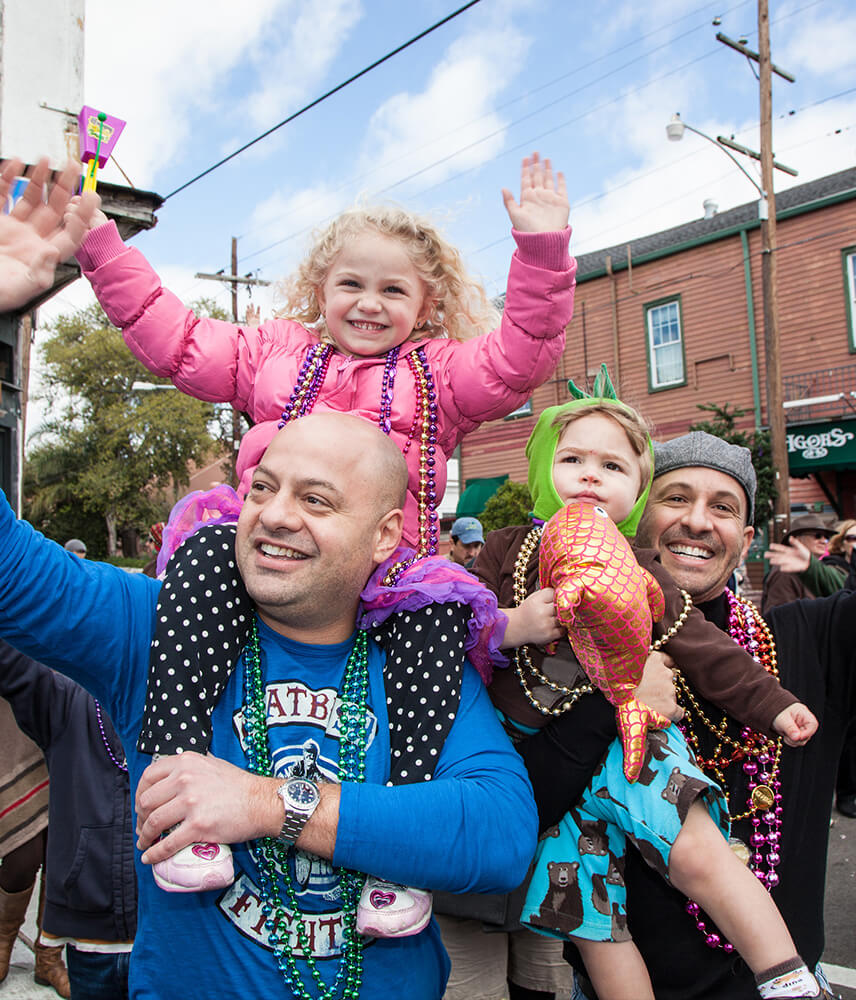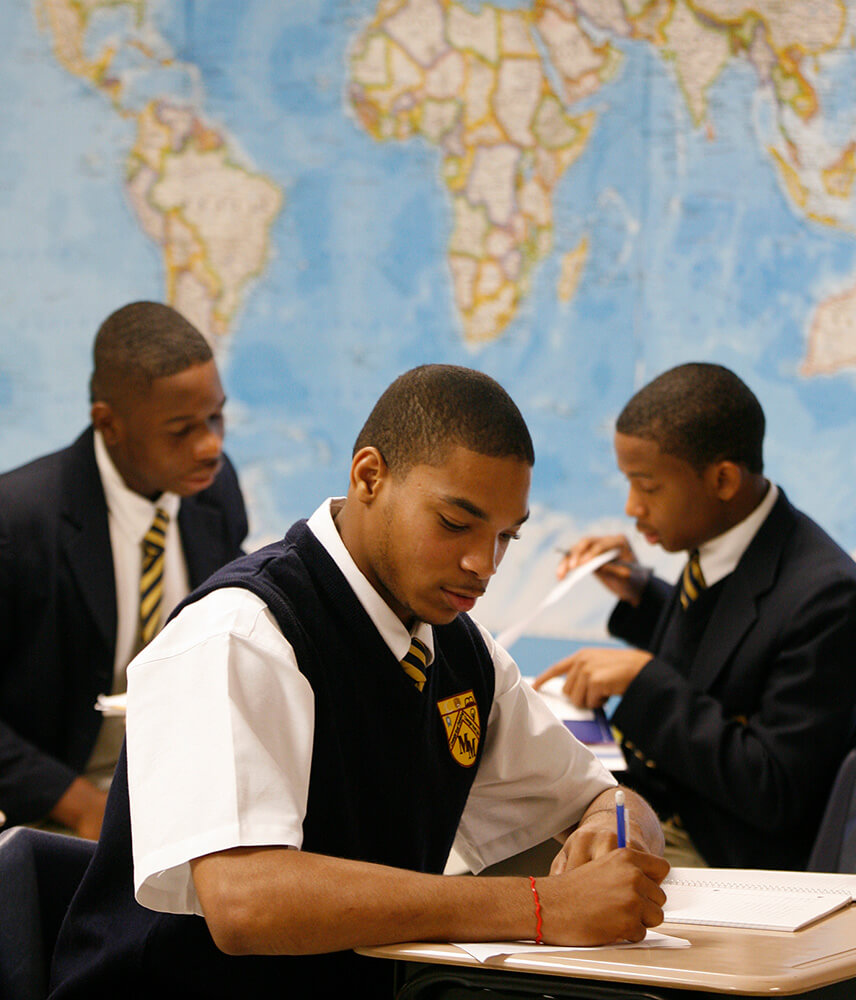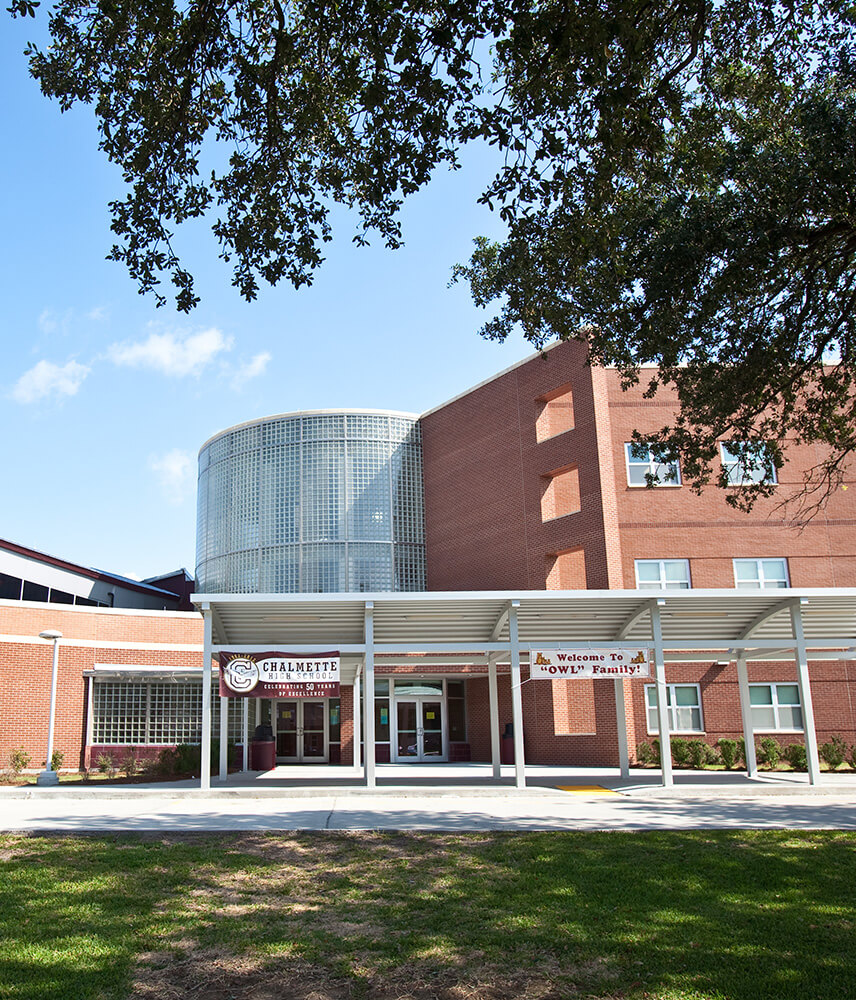
New Orleans Education
With a strong mix of public and private schools in every parish, incoming residents can choose the educational community that best suits the needs and preferences of their family. Indeed, school choice is the centerpiece of remarkable educational improvements across Greater New Orleans. Plaquemines, St. Tammany, St. Charles, and St. James Parishes are all ranked within the top 20 public school systems in the state, and the emergence of charter schools in the City of New Orleans now serves as a model for education reform across the country.
Whether you’re searching for a science and technology high school, a traditional single-sex Catholic environment, an International Baccalaureate program, a language immersion curriculum, or a world-class performing arts academy, you can find it here.
The region is also home to 13 higher education institutions. From two-year community colleges that train students for careers in regional industries, to four-year universities with robust research and development capabilities – including three HBCUs – Greater New Orleans has it all.
Early Childhood & Schools Directory- StudyNOLA - Greater New Orleans Higher Ed Institutions
- Niche - 2021 Best Public Elementary Schools in the New Orleans Metro Area
- U.S. News & World Report - Best Public High Schools in the New Orleans Metro Area
- Niche - 2021 Best Private K-12 Schools in the New Orleans Metro Area
- NOLA By the Numbers - New Schools for New Orleans
- Ed Navigator
Charter Schools
Though the charter school movement is occurring across Louisiana, it is a signature legacy of post-Katrina reform in New Orleans. In Orleans Parish, the entire public school system comprises charter schools, which receive government funding but operate independently from the established state school system. Charters grant schools and their directors increased autonomy while empowering families with greater choice on where to send their children (attendance is not determined by geographic districting in Orleans Parish). Since the introduction of this system of charter schools, New Orleans has seen rapid improvements in both test scores and graduation rates, as well as increased accountability and local responsibility.
Private Schools
Private schools are not a luxury reserved for the elite in Greater New Orleans. In fact, across the region, 25% of students attend non-public schools, thanks in large part to the region’s history of strong and affordable Catholic education. Most private schools in Greater New Orleans offer a robust college-prep environment, with the majority of graduates going on to attend four-year colleges and universities. Some private schools base admissions on test results and/or prior academic performance.
Schools by Parish
Families moving to Greater New Orleans are presented with a unique offering of school options that vary by parish. Below is a closer look at what each of the 10 parishes in the region offers its residents.
Jefferson Parish
Jefferson Parish schools operate under a traditional school system model, with attendance based on residency. The parish has several Academies for Advanced Studies (ASAs), which require students to test in to the school. These schools have application processes that consider both geography and admissions testing.
Jefferson Parish is home to several of the region’s most competitive college preparatory schools. St. Martin’s Episcopal School and Metairie Park Country Day School offer a complete preschool through high school education on beautiful campuses, and nearly all of their graduates go on to attend college. 84% of Jefferson Parish’s private schools are religiously affiliated, including Rummel, Chapelle, and John Curtis Christian School.
Orleans Parish
Since Hurricane Katrina, New Orleans public schools have experienced an extraordinary renaissance, thanks to new governance and unprecedented school choice.
Today, all public schools in Orleans Parish are charter schools. Their admissions process is supported by OneApp, which allows families to submit a single application to up to eight participating schools of their choice, anywhere across the city. In 2018, 82% of incoming Kindergarteners and 9th Graders were placed in one of their top three choices.
Orleans Parish students also have numerous parochial and non-parochial private school options to choose from, including single-sex Catholic schools like Jesuit, Holy Cross, Sacred Heart, Brother Martin, Mount Carmel, and Dominican, as well as non-parochial schools like Newman and McGehee.
Plaquemines Parish
As a parish of small coastal communities, Plaquemines Parish has two public high schools, Belle Chasse High School and South Plaquemines High School, offering a wide range of clubs, activities, and sports programs for students, in addition to public elementary and middle school options. Public school attendance is based on residency.
Our Lady of Perpetual Help School is the parish’s private Catholic school, offering preschool through seventh grade education.
St. Bernard Parish
Following Hurricane Katrina, St. Bernard Parish leveraged millions of federal dollars and strong community support to invest strategically into the rebuilding of Chalmette High School. The public school’s state-of-the-art campus is based on innovative research in high school education and drop-out prevention and demonstrates consistently rising test scores. St. Bernard also offers strong elementary school options for families across the parish.
Private school options are narrower in St. Bernard, with one Catholic school – Our Lady of Prompt Succor School – serving preschool, elementary, and middle school students.
St. Charles Parish
The St. Charles public school system is well-funded and the pride of its industrial community. Hahnville High School and Destrehan High School have strong reputations across the local and state communities, while the St. Charles Satellite Center provides juniors and seniors with field experience and career exposure via a specialized curriculum focused on emerging industries.
There are four private/parochial schools in St. Charles Parish, including St. Charles Borromeo School and Boutte Christian Academy.
St. James Parish
As a small rural community, families are the backbone of the St. James Parish school system. The Lutcher High School Bulldogs are a great source of local pride, boasting a long history of district and state titles in football and swimming. Smaller elementary schools in the parish are also highly regarded for both scholastic performance and community activities.
There are no private schools in St. James Parish. However, private schools in the surrounding parishes are an option for parents.
St. John the Baptist Parish
St. John the Baptist Parish continues to improve its public school options, with enrollment based on residency zones. Introducing career programs into high schools – as well as offering dual enrollment options for college credit – have led to recent improvements in the district’s test scores and achievements.
St. John the Baptist Parish also is home to multiple private schools known for their small classrooms and strong college preparatory programs.
St. Tammany Parish
Boasting several A-ranked high schools, St. Tammany also has the one of the highest ACT composite scores of any parish in the state. Public school attendance in St. Tammany is based on geography, and new schools have been built in recent years to keep up with the North Shore’s growing population.
St. Tammany also has several private schools with outstanding academic and athletic reputations, including St. Paul’s School, St. Scholastica Academy, Our Lady of the Lake, Northlake Christian, and Christ Episcopal, which recently added an upper school to keep pace with increased demand.
Tangipahoa Parish
Tangipahoa offers many unique public school options to ensure each child finds the best fit, including nine magnet schools focused on STEM, Fine and Performing Arts, International Baccalaureate, Montessori, and Career Tech, as well as the Roseland Elementary and Hammond Westside Elementary Montessori Schools programs.
Though Tangipahoa Parish is predominately rural, there are several options for private elementary and middle school education and a strong co-ed Catholic high school, St. Thomas Aquinas, just outside of the City of Hammond. Additionally, Southeastern University Laboratory School, located on the university’s campus, offers a unique option for students in kindergarten through eighth grade.
Washington Parish
Washington is home to 10 public schools, including six elementary schools, four middle schools, and four high schools.
There are no private schools in Washington Parish. However, private schools in the surrounding parishes are an option for parents.
Two-Year Colleges
The Greater New Orleans region is home to four two-year colleges, which each provide a solid catalog of professional certifications, technical training programs, and Associate Degrees which help their students prepare for the workforce.
Delgado Community College
Louisiana’s oldest and largest community college, Delgado has an open-admission policy and seven locations throughout the Greater New Orleans region. Students can earn a number of Associate degrees and Certificates in advanced technology career education, academic pre-baccalaureate education, and traditional occupational training.
Northshore Technical Community College
NTCC is a public community college with open admissions, offering students the skills and information they need for a rapidly changing workforce through world-class training, qualified faculty, and successful partnerships with the local business industry.
Nunez Community College
Nunez is a public, comprehensive community college that offers general education and occupational technologies curriculum. Nunez blends the arts, sciences, and humanities to support students’ Associate degree and Certificate attainment, as well as regional workforce development.
River Parishes Community College
An open-admission, post-secondary, public institution, RPCC serves the river parishes of Southeastern Louisiana with transferable courses and curricula. RPCC grants Certificates and Associate degrees, and partners with the communities it serves to provide programs for personal, professional, and academic growth.
Four-Year Universities
From private universities to state schools, there are eight four-year universities which operate in the Greater New Orleans region. No matter the program desired, there is a higher education destination available within a short drive.
Dillard University
A Gentilly-based, four-year liberal arts university, Dillard is one of New Orleans’s nationally renowned, historically black colleges and universities. In 2018, U.S. News & World Report ranked Dillard No.11 among the nation’s HBCUs.
Loyola University of New Orleans
Located in Uptown New Orleans, Loyola is a private, Jesuit, Catholic institution open to students of all faiths. In 2018, it was ranked No. 12 Best Colleges and Best Value Schools in the South.
Louisiana State University Health Sciences Center New Orleans
With teaching, research, and healthcare facilities across the state, students at LSU HSC receive unprecedented training through 100+ hospitals and health service centers.
Southeastern Louisiana University
Located in Hammond on the North Shore, Southeastern is a four-year public university. The school offers 45 undergraduate and 19 Masters degree programs, as well as two doctoral programs.
Southern University at New Orleans
A public HBCU with an open-admission policy, SUNO offers a liberal arts education directed towards the achievement of higher literacy and broad intellectual development.
Tulane University
Tulane is a private university and among one of the most highly regarded and selective universities in the United States. The 2020 U.S. News and World Report ranked Tulane an impressive No. 40 among national universities.
University of New Orleans
Culturally, socially, economically, and intellectually, UNO is one of the city’s and state’s major educational assets. Last year, the public university was named one of “America’s Top Colleges” and one of “America’s Best Value Colleges” by Forbes.
Xavier University of Louisiana
A private, Catholic HBCU, Xavier has garnered an international reputation for excellence and a proven track record of success. It is among the nation’s top three producers of African American pharmacists. Xavier also graduates more African Americans who become medical doctors than any other school in the country.
Rankings & Facts


